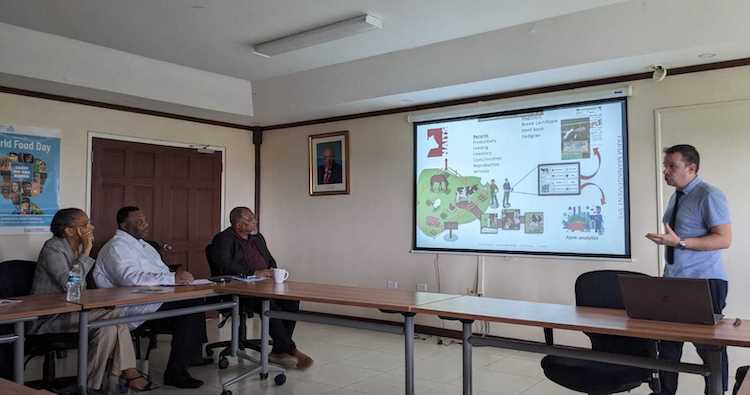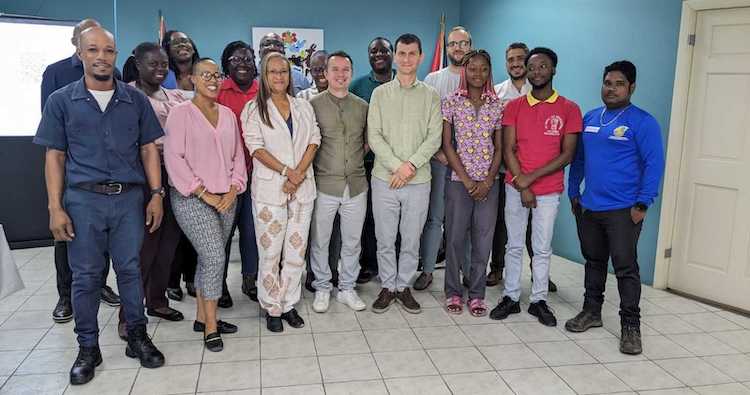UN Food and Agriculture Organisation extending Georgia’s “successful” animal identification system internationally

The FAO Representation in Georgia on Friday said its experts were visiting the countries in the Caribbean to finalise arrangements related to the transfer of Georgia's NAITS system. Photo: FAO Georgia
Georgia’s National Animal Identification and Traceability System, which incorporates information on identity, ownership, geographical location and movement of animals used in meat production, is now being piloted in five countries by the Food and Agriculture Organisation of the United Nations after its “successful” implementation in Georgia.
The FAO Representation in Georgia on Friday said its experts were visiting the countries in the Caribbean to finalise arrangements related to the transfer of Georgia's NAITS system.
After a successful implementation in Georgia by FAO and handover of the system to the National Food Agency, FAO made the system internationally available to other countries in need. [The system] has already been transferred to Antigua and Barbuda, Barbados, Guyana, St. Lucia, and St. Vincent and the Grenadines. Two more countries, North Macedonia and Mauritius, are in the process of transferring Georgia’s NAITS”, the organisation said.
Dragan Angelovski, the Chief Technical Advisor at the FAO, said the Organisation’s management and representations had agreed to continue the cooperation to introduce the system among other interested Caribbean Community members, as a “unique” opportunity to achieve full regional integration of data sharing on animals and animal products.
 Photo: FAO Georgia
Photo: FAO Georgia
The Georgian office of the FAO said the country was the first in the wider region to introduce an electronic system such as the NAITS, and served as a “learning example” for other countries in the Caucasus and Central Asia.
Confirming the robustness and quality of the system, countries including North Macedonia, Albania, Uzbekistan, Kyrgyzstan and Mauritius have also expressed interest in sharing the system or sharing the Georgian system development experiences”, the organisation said.
The NAITS was launched in Georgia 2017, when the country was still using paper documentation for the industry, and was handed over to the Government in 2021.
The current, second phase of the project is designed to extend sharing of information with other governmental and nongovernmental stakeholders, secure sustainability of the system and ensure the long-term impact on public health, animal health, food safety and access to international markets, FAO Georgia said.
The project is implemented by the National Food Agency with the technical support of FAO Georgia, and financial support of the Swiss Agency for Development and Cooperation and the Austrian Development Cooperation.
 Tweet
Tweet  Share
Share